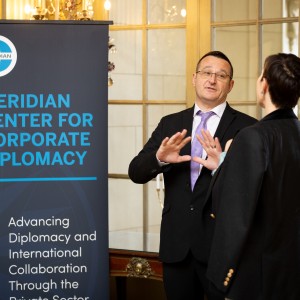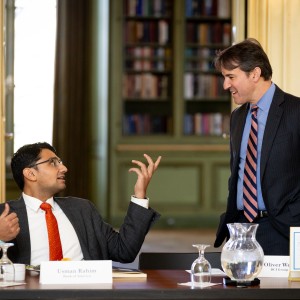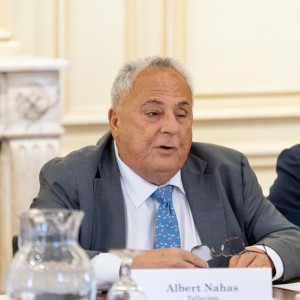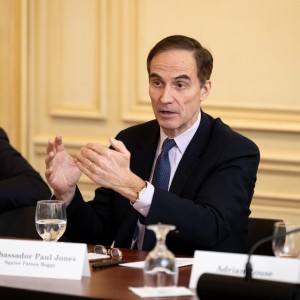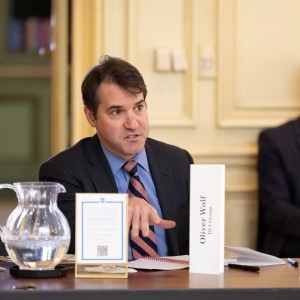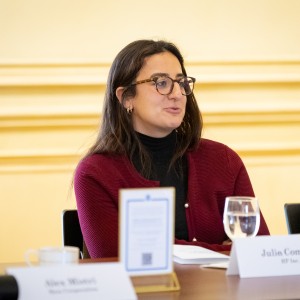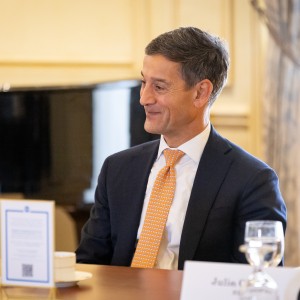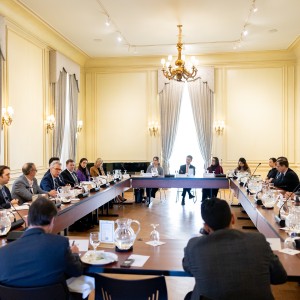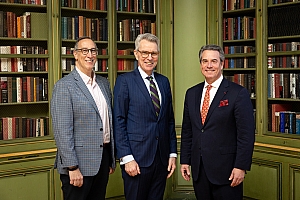Global Business Briefing with The Honorable Geoffrey R. Pyatt, Assistant Secretary for Energy Resources, U.S. Department of State
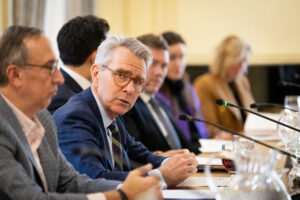
On December 14, 2023, the Meridian Corporate Council hosted a Global Business Briefing with The Honorable Geoffrey Pyatt, Assistant Secretary for Energy Resources at the U.S. Department of State. The discussion, moderated by The Honorable Robert Scher, Head of International Affairs at BP America covered some of the key outcomes of COP28 and the critical role that energy systems play in geopolitics.
About Assistant Secretary Pyatt
The Honorable Geoffrey R. Pyatt, a career member of the Foreign Service, class of Career Minister, was sworn in as Assistant Secretary for Energy Resources on September 19, 2022. Ambassador Pyatt served as U.S. Ambassador to Greece from 2016 to 2022 and U.S. Ambassador to Ukraine from 2013 to 2016. Among other recognitions, he received the State Department’s Robert Frasure Memorial Award in recognition of his leadership of the U.S. response to Russia’s invasion of Crimea and eastern Ukraine in 2014. Previously, Ambassador Pyatt was Principal Deputy Assistant Secretary of State in the Bureau of South and Central Asian Affairs from 2010-2013. He was Deputy Chief of Mission at the U.S. Mission to the International Organizations in Vienna, Austria from 2007 to 2010. He also served three times at the U.S. Embassy in New Delhi, India, as Deputy Chief of Mission from 2006 to 2007, Political Counselor from 2002 to 2006, and Political Officer from 1992 to 1994.
Here are some takeaways from the program:
COP28 was a clear indication of the growing importance of public-private partnerships in international affairs. A key outcome was that for the first time, countries agreed on the need to transition away from fossil fuels in energy systems. The agreement also includes global targets to triple the capacity of renewable energy and double the rate of energy efficiency by 2030. It is clear that the green energy transition looks very different across different parts of the world. Although many countries in the Global South are the least responsible for causing the climate crisis, they are being asked by the international community to speed up their transition to clean energy sources. This is something that will require more financing from the Global North in order to remodel energy systems and energy infrastructure across continents such as Africa and Latin America. Following the Russian invasion of Ukraine, it has become apparent that energy systems play a fundamental role in geopolitics and countries’ national security. This is also true for critical minerals which are essential for manufacturing clean energy technologies such as wind turbines, solar panels, and electric vehicles. A key challenge that the U.S. will have to address is how it can speed up its green energy transition without deepening its reliance on China for critical minerals necessary for the construction of renewable energy technologies.
This program was made possible through the support of:

Project summary
| Global Business Briefing with The Honorable Geoffrey R. Pyatt, Assistant Secretary for Energy Resources, U.S. Department of State | December 2023 | |
|---|---|
| Number of Visitors: | 20 |
| Number of Attendees: | 20 |
| Regions: | Western Hemisphere, Europe and Eurasia, East Asia and Pacific, Africa, Near East and North Africa, South and Central Asia |
| Impact Areas: | Energy and the Environment, Foreign Policy |
| Program Areas: | Corporate Diplomacy |
| Partners: | Private Sector, Diplomatic Corps |
